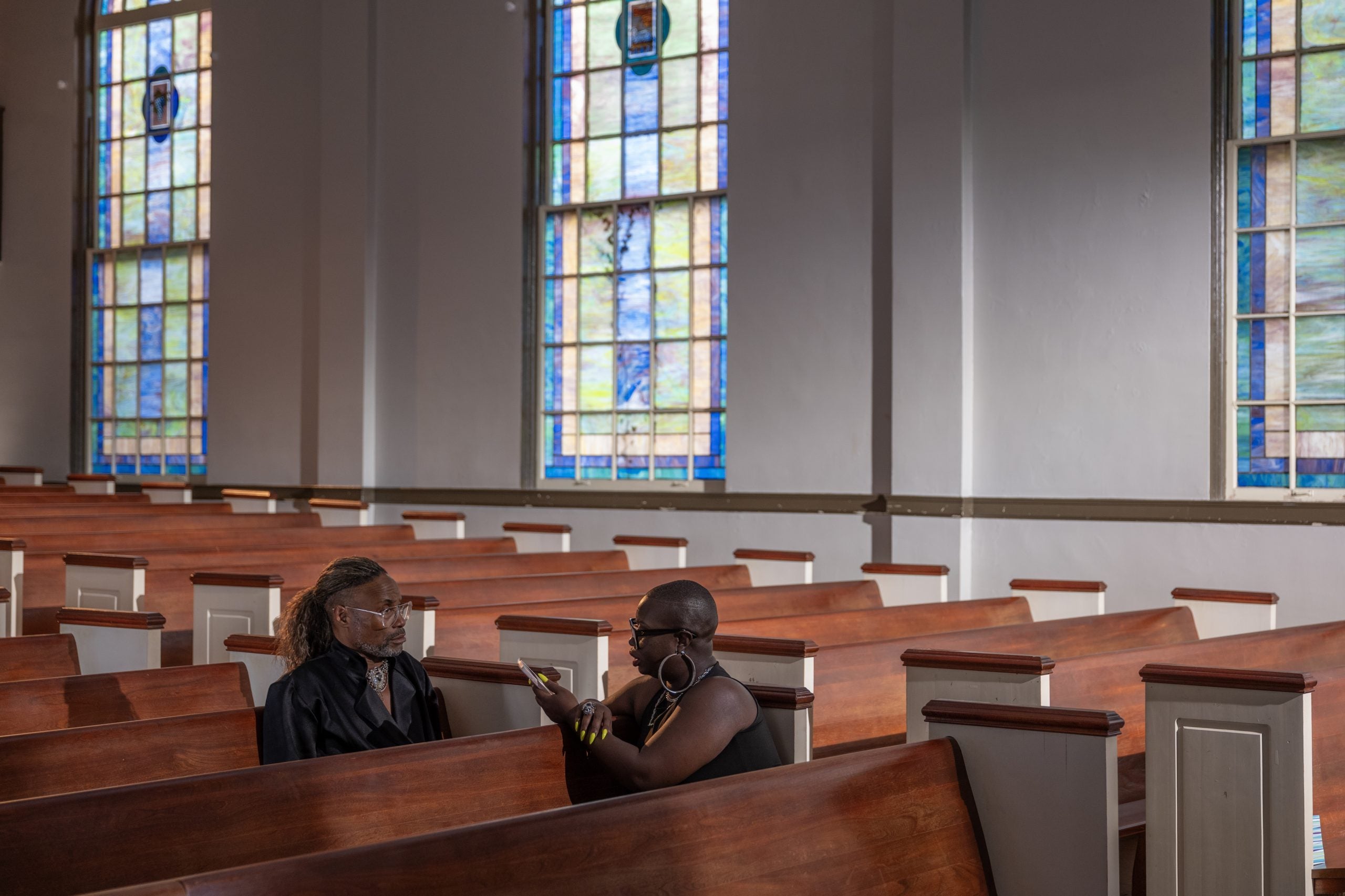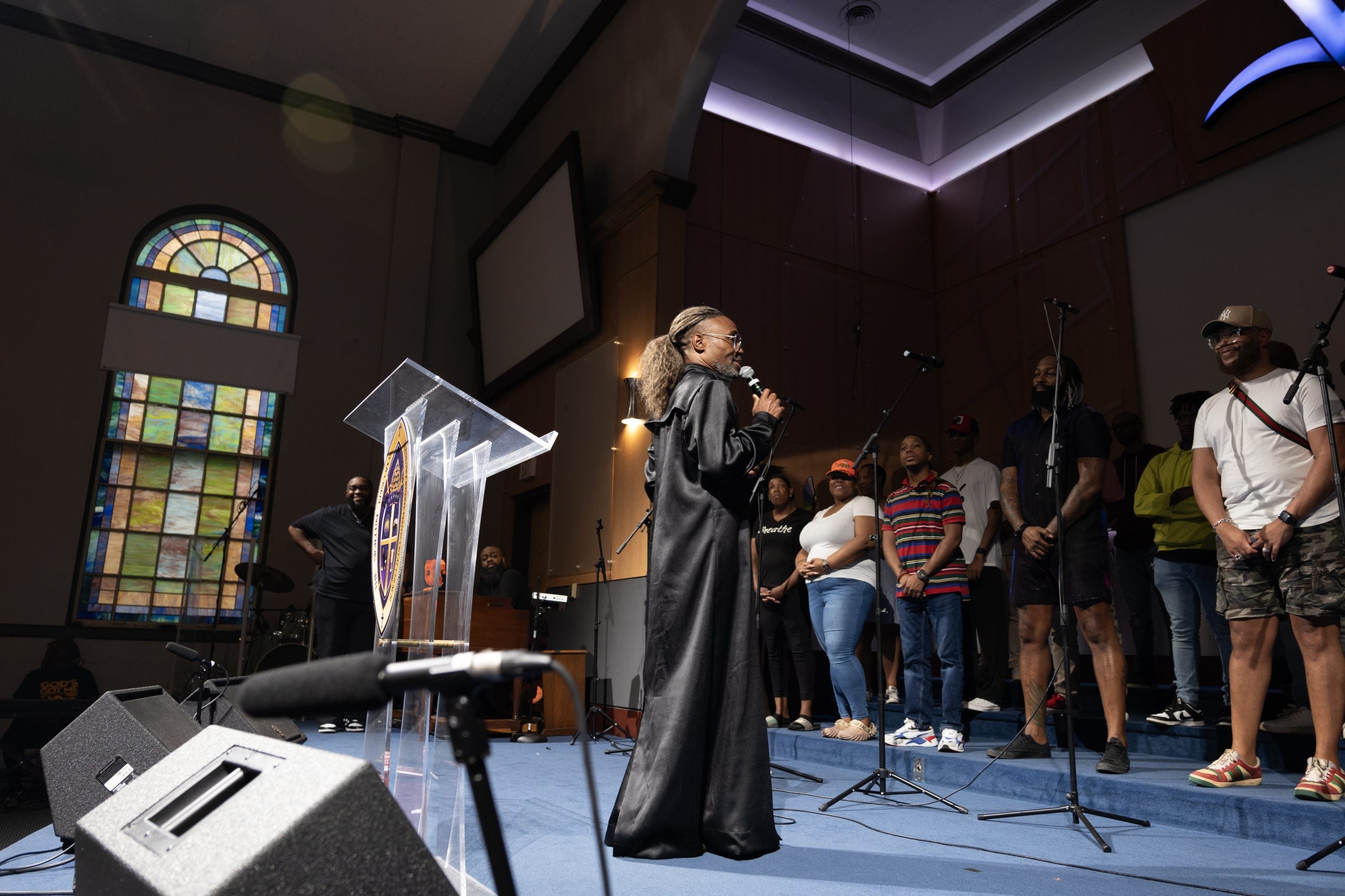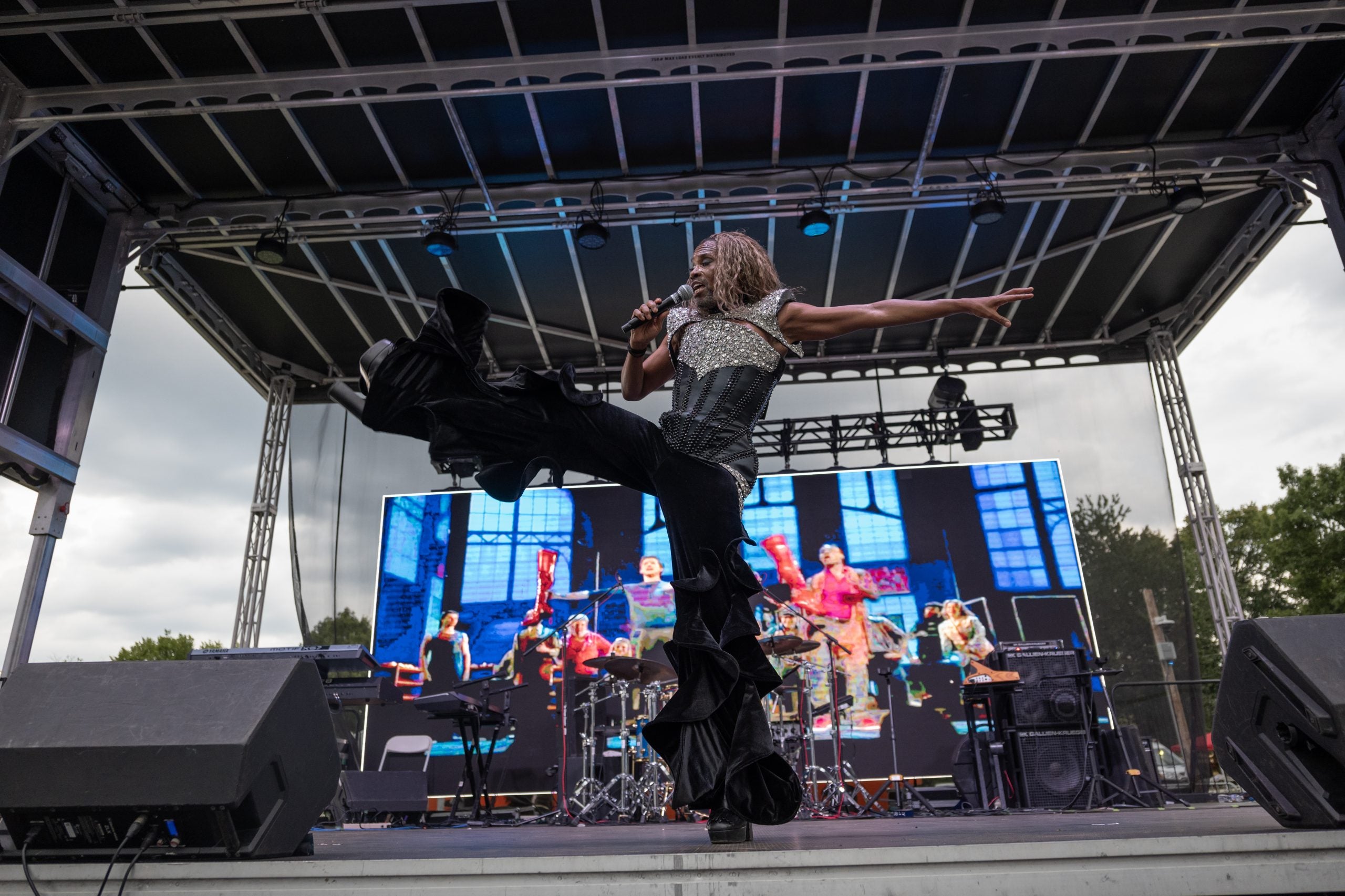
In the bright lights of fame, where many are celebrated for their talents, few are as loved and revered for their truths as they are for their art as Billy Porter. Whenever he speaks, his words resonate like an anthem. He walks through life with the conviction that living authentically is not only bravery but also survival. Porter is a powerful voice for marginalized communities, a fierce advocate for LGBTQ+ rights, and a champion for those living with HIV/AIDS. His life’s work is rooted in the intersection of identity, faith, and activism, where he seeks to create lasting change and uplift others by sharing his story.
In August, I had the chance to meet with the Tony, Grammy and Emmy winner at the Vision Church of Atlanta. In partnership with the Elton John AIDS Foundation, he was there to speak with Black faith leaders, including Bishop Oliver Clyde Allen III, the founder of the Vision Community Foundation, about reducing HIV stigma. Georgia is one of the states, in addition to Florida, Texas, and Louisiana, that the Foundation is funding programming in due to alarming rates of new transmissions.

During our conversation, Porter opened up about his journey—coming out in the ’80s during the height of the AIDS crisis, his complicated relationship with faith, and the work he’s doing with the Elton John AIDS Foundation to uplift marginalized communities, particularly in the South. This National Coming Out Day, Porter’s story is a reminder of the power of visibility, faith, and the courage to take up space unapologetically.
The star came out in 1985. For many, this time was marked by fear, stigma, and death. But for Porter, it was also a call to action. “We went straight to the front lines to fight for our lives,” he recalls. “For me, coming out wasn’t just about declaring my sexuality—it was about reclaiming my power. Silence equals death.” That phrase, “Silence equals death,” is from his days working with Act Up, an international grassroots group founded in 1987 to “end the AIDS pandemic.” It’s a slogan that still rings true for him today.
“The dehumanization of queer people still happens because of silence,” Porter tells me, echoing the message from decades ago. For him, National Coming Out Day is about breaking that silence. “Coming out is about no longer being silent. It requires accountability—both from the people hearing the information and from those giving it,” he says. “We must come out so we know who our allies are and who are not, so we can understand how to validate and save ourselves.”
As a first-generation activist post-civil rights movement, Porter has always been determined to speak truth to power. “I only know how to fight for justice,” he says. Porter’s platform as an artist has been central to his activism. Whether it’s through his music, acting, or writing, Porter uses his gifts to spark dialogue around social justice, particularly in the fight against HIV, which he was diagnosed with in 2007. His work with the Elton John AIDS Foundation is one of the most personal extensions of this mission. “It’s a gift and a blessing to be in this space,” he says of his partnership with the nonprofit. As an ambassador for the foundation, Porter is dedicated to raising awareness and funds for critical HIV programs, especially in the South—a region disproportionately affected by HIV/AIDS, particularly in Black communities.
“The mobilization is what’s most important,” Porter explains. “And at the root of that is the Black church. That’s where most of us are. A lot of our trauma comes from there, but it’s also where change can happen.” The foundation is working to train faith leaders to better understand and support their congregations, especially around issues of HIV and sexual health. “I didn’t know this kind of work was happening,” he admits, “but I’m so moved.”

One of the most profound aspects of Porter’s journey is his relationship with faith. Raised in the Pentecostal church, his early years were filled with both the love of community and the sting of rejection. “I was taught that who I am was sinful, that my existence was an abomination,” he shares. At just five years old, he was sent to a psychologist by his family because of fears surrounding his “queerness.” Shortly after, his mother remarried, and Porter endured years of sexual abuse from his stepfather—a trauma the church community turned a blind eye to.
“I was damned to hell, and there was no accountability for the man who molested me,” he recalls with pain but also with a remarkable sense of perseverance. Porter was 16 when he left the church, but despite his spiritual and familial abandonment, he never completely let go of his spiritual connection. “I had to separate religion from spirituality,” he explains. “I’ve always been spiritual. I’ve taken the good stuff from the church and applied it to my ministry, how I walk through the world.”
For the first time in over three decades, Porter now feels at home in a church again—thanks to Vision Church, a queer-affirming space that seeks to bridge the gap between faith and the LGBTQ+ community. “I have a church home as of today,” Porter says, overwhelmed by the love and authenticity of the community. Vision Church’s unapologetic embrace of queerness allowed him to reclaim his faith, bringing him full circle in his spiritual journey. He sang his song “Audacity” with members of the church’s choir, which is about authenticity, “The audacity to show up honestly,” as the lyrics say.

Throughout our conversation, one thing is abundantly clear: Billy Porter is living fully, freely, and unapologetically. A day after meeting him, he would take the stage in Atlanta, making that clear as he headlined the Global Black Pride event, which, for the first time, was held in the U.S.
“For the first 25 years of my life, I tried to be somebody else,” he shares. “Now, I get to be this thing—unapologetically.” He is a reminder that representation matters, whether on the red carpet or in the church. Showing up as your full self is an act of love and resistance. And as we celebrate National Coming Out Day, his message is one of empowerment for anyone who has ever felt the need to hide who they are: “Come out so you can live freely. So you can know who loves you for who you are. Because that’s where the healing starts.”
As the actor and singer continues to inspire through his art and activism, he is also committed to leaving a legacy of love, truth, and resilience. He remains a beacon for those seeking to live without fear. “I spent years hiding who I was,” Porter reflects. “Now, I live out loud because that’s the only way to be free.” His collaboration with the Elton John AIDS Foundation is just one chapter in his ongoing mission to fight for the marginalized and to ensure that everyone has the chance to live—and love—openly.







